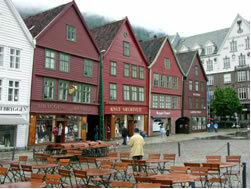Many people use the words Sea and Ocean as if they were synonymous, but did you know they express different meanings? The confusion between these two terms is understandable, as the difference between them is very small, as they both refer to large expanses of salt water.
The first and main basic difference between sea and ocean is their territorial extension. The oceans occupy large extensions and are delimited by portions of land (in fact, it is the emerged lands that are delimited by the oceans), while the seas are much smaller and are usually delimited by the continents in most of their Appetizer.
Another important aspect to note is depth. The oceans are so deep that until today man has not been able to reach or transport a device to their deepest location, with thousands of meters. On the other hand, the seas have a depth that is usually a few hundred meters.
In fact, most seas are part of the Oceans. They are precisely those stretches closest to terrestrial geographic accidents, having a great importance for countless peoples. An example is the Mediterranean Sea, an extension of the Atlantic Ocean.

See the location of the Mediterranean Sea and its integration with the Atlantic Ocean
There are three main types of seas: the open, which are open and have a broad connection with the oceans (as in the example above); you continental, which have a very restricted connection with the oceans, and the closed, which connect to ocean waters only indirectly (through canals and rivers).
Some things you probably didn't know about the seas and oceans
- The Arctic Glacial and Antarctic Glacial oceans are actually seas, as they are shallow and not very extensive. They were called oceans in the past, so much so that older books still bring this information that is no longer correct.
- As a result, there are only three oceans in the world: Pacific, Atlantic and Indian.
- The Dead Sea is not a sea, but a large salt water lake.
- The expression “seven seas” appeared in legends of the Middle Ages and, in fact, refers to oceans. Many people use this expression these days to divide the oceans in a different way: the Pacific and the Atlantic divide into two each. To them are added the Indian Ocean, the Arctic Glacier and the Antarctic Glacier.
- The Pacific Ocean received this name because of the apparent tranquility of its waters. Today, however, navigators know that it is more dangerous than the Atlantic.
By Me. Rodolfo Alves Pena


